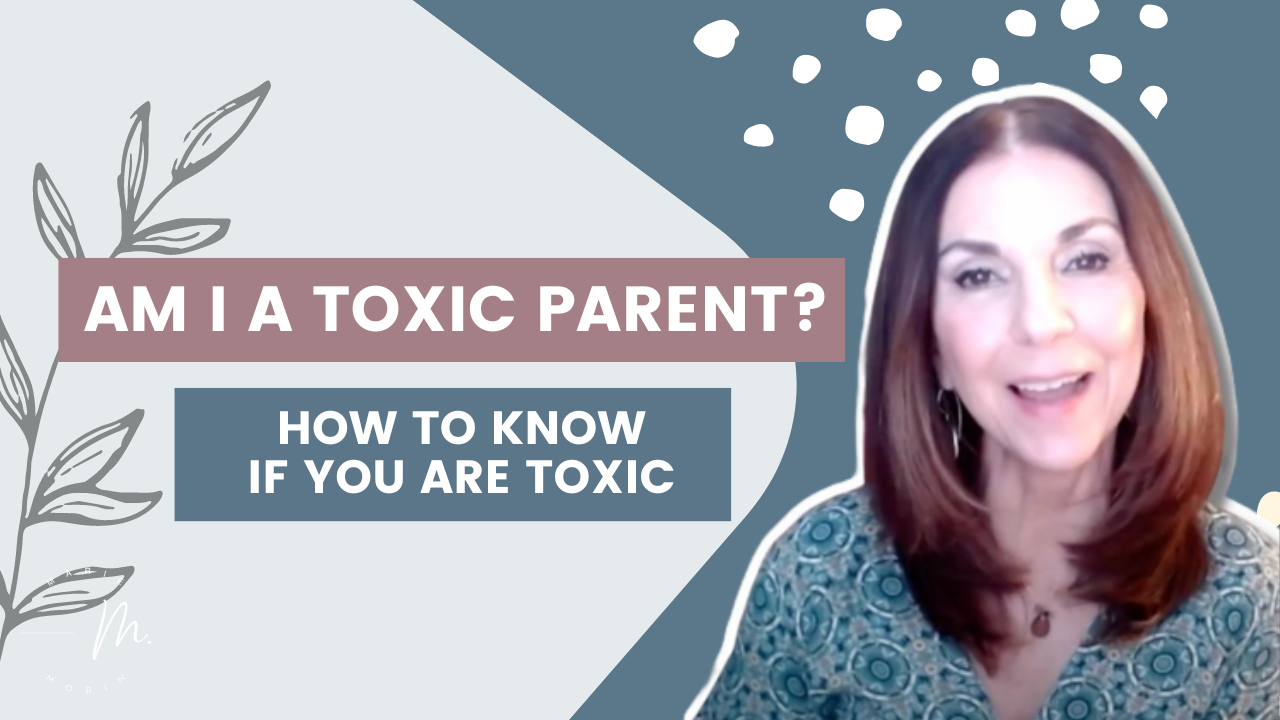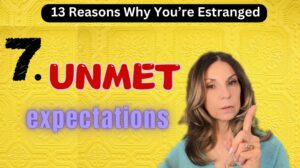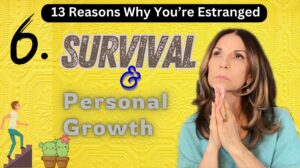Has your estranged adult child told you that you are toxic and they’re not speaking to you?
You may be angry, anxious, depressed, dumbfounded, or shocked. Parents are often surprised by such announcements by their adult children. Adult children have very different perceptions of the parent-child relationships. This article discusses six toxic behaviors so parents can discover “Am I A Toxic Parent, How to Know If You Are Toxic, When Your Adult Child Won’t Speak to You.
Parents are imperfect, and it is normal to have conflict in parent-adult-child relationships.
The behaviors of toxic parents are consistent, frequent, and problematic for the adult child.
If your adult child has said you are toxic, knowing their perceptions and examining your history with them will bring insight. Awareness of past and recent behaviors will illuminate what might have gone wrong.
You and your adult child have keenly different perspectives. Your adult child’s personality and maybe a low tolerance for sporadic “toxic” behaviors can inform your estrangement condition. Abuse and toxic behaviors damage children and adults and hurt relationship connections. They can experience trauma and difficulty with emotional regulation. Children raised in the same household can respond differently to less than the best parental behaviors. Toxic parenting can be perceived as abuse.
Six Toxic Behaviors
Common toxic behaviors estranged adult children mention include lack of respect, crossing boundaries, disrespecting privacy, feeling like they cannot ever satisfy their parent’s high expectations, controlling, and manipulation. Consider asking yourself if you relate to what your adult child has told you. Insight into past behaviors can open possibilities for self-healing. Ask yourself if you have any of these behaviors now or in the past.
1. Do you treat your adult child as though they were less than you? Are you disrespectful to them?
2. Do you cross their boundaries by not respecting their right to privacy?
3. Do you have excessively high expectations and are frequently dissatisfied with what your adult child does or says?
4. Has your kid told you that you expect too much from them and that nothing they do is good enough for you?
5. Have they told you that you are controlling? Have they said that you are always telling them what they should do or say?
5. Have they said that you are manipulative? Have you promised them things and not kept your promises?
6. Have they said you constantly lose it by exploding in angry fits?
Behaviors that are controlling, manipulative, explosive, high expectations with nothing that pleases you, lacking boundaries and disrespect for your adult child,
Being cut off by an adult child is stressful and emotionally painful. Recognizing one has been toxic can also be devastating. However, as adult children hopefully seek professional help to addres their discomfort and stressful experience, parents benefit from therapy. Daily self-care practices, meditation, prayer, breathing techniques, and daily movement are excellent practices to move forward and build a life regardless of your relationship status.
Estrangement When There is Abuse
When there is a history of Abuse, the notion of reconciling requires the professional guidance of a therapist and insight into the abuser’s recognition of their behaviors. More to the point, therapeutic work is essential for both parties and ensures future emotional and physical safety. Kylie Agllias, researcher, and educator, in her book Family Estrangement A Matter Of Perspective, explains that commitment, insight, and integrity are needed to reestablish trust.
What You Need To Know About Abuse
Toxic Behaviors
Toxic behaviors and estrangement can alter one’s mental state. Specifically, children raised in a toxic home will suffer psychological harm. Harmful behaviors include repeated encounters with a family member who is overly reactive and self-centered, consistently disapproving, and discouraging. They can be exploitative, inability to assume responsibility for their actions, dismissive of the other’s thoughts and feelings, disrespectful of other’s boundaries, disregard others by humiliation, and psychologically manipulating to create doubt in the other’s sanity.
Families At their Worst
Abused family members carry an enormous burden. Cutting off is acting self-preservation and self-defense. Toxic behaviors include the abuser standing too close to by frightening and denying the right to sleep. In addition, the abuser remarks that the abused cannot do or say anything right, blaming the victim for the Abuse, invading privacy by reading mail or texts, monitoring calls, and telling others private information about the abused. The lengthy list of potential abusive behaviors family members imposes parallels the harmful impact their behaviors unleash on the victim.
Toxic Parents
Parents who may formerly or presently exhibit toxic behaviors have likely experienced toxic behaviors in their family. Parenting the most compliant children is challenging. While there is no excuse for harming others, parents can learn skills and do therapy to change.
Walking Towards Resilience
Many individuals desire reconciliation. They want the benefits of family involvement, real or imagined. In their best form, families are supportive, welcoming, and accepting. When families are at their worst, they can be toxic and abusive. Therapy can provide a safe, trusting individual to help one move forward away from the negative impacts. Being informed, discovering more self-compassion, journaling, meditating, practicing yoga Nidra, forgiveness, empathy, and creating boundaries, are all doors you can open. Trust yourself to know what you are ready and willing to do to heal.
It is extremely frustrating to many estranged adult children who no longer speak to their parents and announce they are toxic. If you relate to this, there may be a degree of denial. Also, you may be angry, anxious, depressed, dumbfounded, or shocked. Adult children have very different perceptions of the parent-child relationships. This article discusses six toxic behaviors so parents can discover “Am I A Toxic Parent, How to Know If You Are Toxic, When Your Adult Child Won’t Speak to You.





